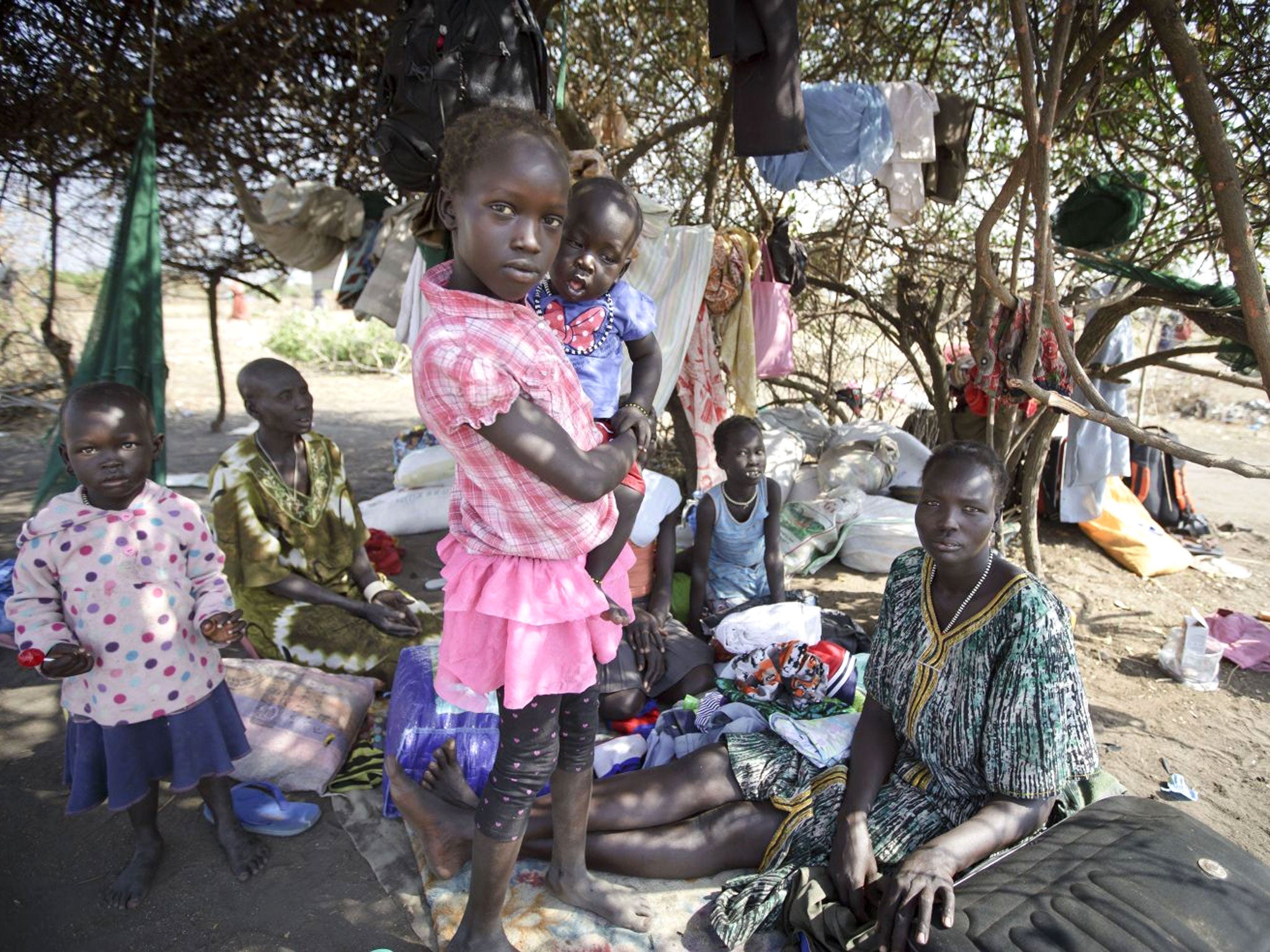
Your support helps us to tell the story
From reproductive rights to climate change to Big Tech, The Independent is on the ground when the story is developing. Whether it's investigating the financials of Elon Musk's pro-Trump PAC or producing our latest documentary, 'The A Word', which shines a light on the American women fighting for reproductive rights, we know how important it is to parse out the facts from the messaging.
At such a critical moment in US history, we need reporters on the ground. Your donation allows us to keep sending journalists to speak to both sides of the story.
The Independent is trusted by Americans across the entire political spectrum. And unlike many other quality news outlets, we choose not to lock Americans out of our reporting and analysis with paywalls. We believe quality journalism should be available to everyone, paid for by those who can afford it.
Your support makes all the difference.Mediators said it was now unclear if South Sudanese rebels would start face-to-face peace talks with the government on Saturday, dampening hopes of a swift end to weeks of ethnic fighting in the world's youngest state.
Negotiations in South Sudan's neighbour Ethiopia have already faced a series of delays and false starts. Both sides met mediators from the regional IGAD grouping for a second day on Saturday but did not sit down together.
"They are still working on formalising the agenda that they will hold discussions on," said the spokesman for Ethiopia's Foreign Ministry, Dina Mufti.
Asked when the two camps would meet, Dina told Reuters: "We can't predict. They are working on it." Ethiopia's foreign minister had earlier said direct talks would start on Saturday.
Further clashes between President Salva Kiir's SPLA government forces and rebels loyal to former vice president Riek Machar on Friday suggested the ceasefire demanded by bordering nations was still a long way off.
Western and regional powers, many of whom supported the negotiations that led to South Sudan's independence from Sudan in 2011, are pressing for a deal, fearing the new fighting could slide into civil war and destabilise east Africa.
Clashes have already killed more than 1,000 people, driven 200,000 from their homes and rattled oil markets.
A rebel spokesman in northern Unity states told Reuters rebel columns were closing in on Juba though there was no independent confirmation and the SPLA has regularly dismissed similar reports over the past week.
South Sudan remains one of the continent's least developed countries for all its crude reserves, estimated by BP to be sub-Saharan Africa's third largest.
The fighting erupted on Dec. 15 in the capital, Juba, and rapidly spread across the country the size of France along ethnic faultlines.
Kiir accused his long-term political rival Machar, whom he sacked in July, of starting the clashes in a bid to seize power and arrested 11 senior political figures he said were involved in the alleged plot.
Kiir is from the country's Dinka group while Machar is a Nuer - tribal groups have fought each other in the past during tussles for domination, influence and resources.
Machar dismissed the accusation but he has acknowledged leading soldiers battling the government. He has accused Kiir of purging political opponents within the ruling SPLM party ahead of elections next year.
Kiir has since agreed to release eight of the 11. But a member of the rebel delegation at the talks in a luxury Addis Ababa hotel said on Saturday the release of the remaining detainees was one stumbling block to talks.
"The release of the detainees is a priority for us," said the rebel delegate, withholding his name because he was not authorised to talk to journalists. "We haven't yet agreed on prioritising that as an agenda."
The negotiations in Ethiopia are meant to focus on when a ceasefire should begin and how it should be monitored. Both the SPLA and rebels have said they intend to put down their arms.
In a sign of deteriorating security, the United States on Friday ordered more or its staff out of South Sudan and told all other U.S. citizens to leave.
Reuters
Video: South Sudan rival factions begin peace talks
Join our commenting forum
Join thought-provoking conversations, follow other Independent readers and see their replies
Comments